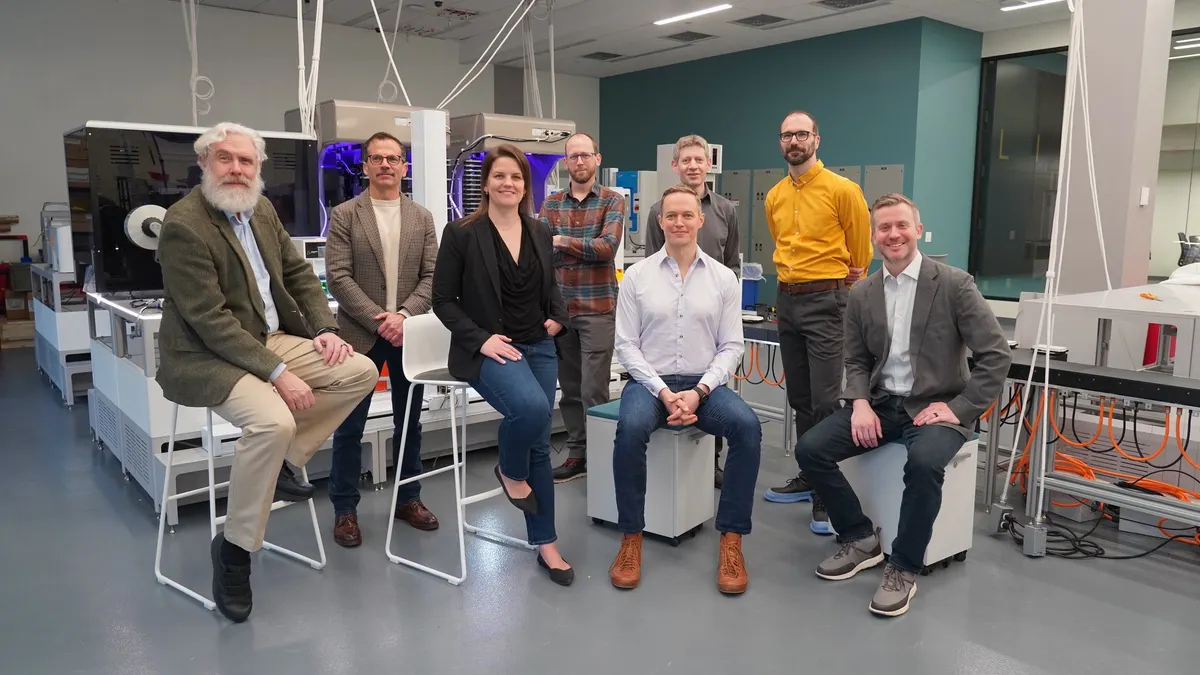Artificial intelligence’s promise to accelerate life sciences research has already drawn billions of dollars of investment in recent years, fueling the rise of companies like Recursion Pharmaceuticals. The latest beneficiary of that interest is Lila Sciences, a Flagship Pioneering-backed startup that’s raised $200 million in seed funding.
Lila’s ambitions match its funding. The company aims to build what it calls “scientific superintelligence,” an AI platform it contends will be capable of designing and running experiments to accelerate research “across every domain of science.”
Since forming in 2023, the company has tested its platform in a range of disciplines and says it performs at levels that are superior to current benchmarks, whether they’re set by humans or current AI models. As examples, Lila claims its platform discovered and validated “hundreds” of novel antibodies and peptides, and generated non-platinum group metals that could be used to catalyze production of green hydrogen at a lower cost. It also has developed a specialized large language model that can reason through the scientific process.
AI in the life sciences is nothing new, of course. Biotechs such as Recursion and tech giants like Nvidia have shopped machine learning models to life sciences firms, promising to deliver new drug candidates faster than laboratory grunt work by human scientists.
Lila is aiming more broadly, taking on what Molly Gibson, an origination partner at Flagship and Lila’s president of future science, describes as the “long and tedious path” of creating a hypothesis, designing an experiment and testing it “essentially instantaneously.”
Though Lila’s AI models are designed so far to help with early discovery, Gibson anticipates greater speed early on will have a domino effect across other parts of the drugmaking process that take more time.
“If we can actually start to encode those in more of the early science, we should be able to speed the process up,” she said, such as by increasing the probability of success in clinical trials.
Lila will not make its own therapeutic candidates. Instead, the company will partner with other Flagship startups and outside biotech companies to help them speed their research.
The company is led by Geoff von Maltzahn, a general partner at Flagship. On its executive team are chief technology officer Andrew Beam, a senior fellow at Flagship; Kenneth Stanley, a former OpenAI executive turned a senior vice president at Lila and George Church, the renowned geneticist who will serve as its chief scientist.
“We must solve the hard problems to allow AI to autonomously and in a scalable manner run each step — from AI models generating an idea to reducing it to practice with robotics and automation,” von Maltzahn said in a statement.
Gibson said the company’s platform isn’t supposed to supplant researchers, though. “We're not imagining a world in which humans aren’t a part of the scientific process,” she said.
As claims of AI’s life sciences potential have grown grander, some in the biotech industry have made the case its impact will be more limited than those investing in the technology say. Problems with the quality and quantity of certain biological data remain, and AI’s greatest utility may be as one of many tools biotech scientists use to advance their drug research. Already, the industry has "increasingly outsourced AI development," rather than spending money to develop those capabilities in-house, according to Pitchbook.
In addition to Flagship, Lila received backing from eight other investors that include General Catalyst, ARK Venture Fund and Altitude Life Science Ventures.
Editor’s note: This article has been corrected to note that Beam came to Lila from Flagship, and Stanley from OpenAI.














